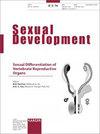The Use of Genetics for Reaching a Diagnosis in XY DSD
IF 2.4
4区 医学
Q2 DEVELOPMENTAL BIOLOGY
引用次数: 5
Abstract
Reaching a firm diagnosis is vital for the long-term management of a patient with a difference or disorder of sex development (DSD). This is especially the case in XY DSD where the diagnostic yield is particularly low. Molecular genetic technology is playing an increasingly important role in the diagnostic process, and it is highly likely that it will be used more often at an earlier stage in the diagnostic process. In many cases of DSD, the clinical utility of molecular genetics is unequivocally clear, but in many other cases there is a need for careful exploration of the benefit of genetic diagnosis through long-term monitoring of these cases. Furthermore, the incorporation of molecular genetics into the diagnostic process requires a careful appreciation of the strengths and weaknesses of the evolving technology, and the interpretation of the results requires a clear understanding of the wide range of conditions that are associated with DSD.遗传学在XY型DSD诊断中的应用
对于性发育差异或障碍(DSD)患者的长期管理来说,获得明确的诊断至关重要。在XY DSD中尤其如此,其中诊断产率特别低。分子遗传技术在诊断过程中发挥着越来越重要的作用,它很可能在诊断过程的早期阶段被更频繁地使用。在许多DSD病例中,分子遗传学的临床应用是明确的,但在许多其他病例中,需要通过长期监测这些病例来仔细探索基因诊断的益处。此外,将分子遗传学纳入诊断过程需要仔细评估不断发展的技术的优势和劣势,而对结果的解释需要清楚地了解与DSD相关的广泛条件。
本文章由计算机程序翻译,如有差异,请以英文原文为准。
求助全文
约1分钟内获得全文
求助全文
来源期刊

Sexual Development
生物-发育生物学
CiteScore
4.00
自引率
4.30%
发文量
25
审稿时长
>12 weeks
期刊介绍:
Recent discoveries in experimental and clinical research have led to impressive advances in our knowledge of the genetic and environmental mechanisms governing sex determination and differentiation, their evolution as well as the mutations or endocrine and metabolic abnormalities that interfere with normal gonadal development. ‘Sexual Development’ provides a unique forum for this rapidly expanding field. Its broad scope covers all aspects of genetics, molecular biology, embryology, endocrinology, evolution and pathology of sex determination and differentiation in humans and animals. It publishes high-quality original research manuscripts, review articles, short reports, case reports and commentaries. An internationally renowned and multidisciplinary editorial team of three chief editors, ten prominent scientists serving as section editors, and a distinguished panel of editorial board members ensures fast and author-friendly editorial processing and peer reviewing.
 求助内容:
求助内容: 应助结果提醒方式:
应助结果提醒方式:


